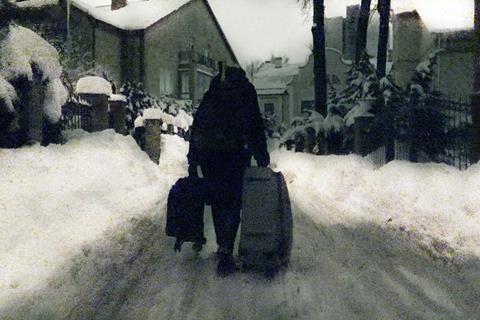Gripping documentary which offers a front-line dispatch from the war on homosexuality

Dir/scr: David France. US. 2020. 107 mins.
Degenerate outsiders, decadent influences, and a nation whose only defence is to “purify” its bloodlines through oppression, incarceration and, ultimately, extermination. It is the age-old language of genocide. And today, in the Russian Republic of Chechnya, it is public policy, and its targets are gay men and women. Built on a potent mixture of quiet bravery and hard-won access, David France’s new documentary, Welcome to Chechnya, puts audiences in the middle of the literally life-or-death struggle of an already endangered minority.
France, an investigative journalist and former Newsweek editor, has always been open to bold narrative choices
Both carefully reported and deeply felt, it seems assured to win critical accolades, and simultaneously engage and outrage sympathetic audiences. Perhaps it may even eventually result in an “inspired by” feature film. Certainly its heroic activists – the scruffy David Isteev, and the seriously intense Olga Baranova – are as charismatic as any film’s fictional protagonists. And the pseudonymous people we watch them trying to help – Grisha, a survivor of brutal torture, Anya, a young woman fearful of an “honour killing” – have personal stories more horrifying than the plot of any thriller.
Isteev works for a gay rights group in Russia, Baranova for an LGBTI+ community center in Moscow. Both are used to dealing with unchecked autocrats and institutionalised homophobia. But even within the Russian Federation, Chechnya presents a special case. Its dictatorial leader unapologetically espouses the most fundamentalist, and unforgiving, interpretations of Islamic law. If the police suspect you of being gay, they will arrest you, torture you, imprison you. If your family suspects you, they will probably, simply, kill you. And no one will do a thing. “It is a shame to be gay in Chechnya,” Isteev explains. “It is a shame so strong it can only be washed away with blood.”
This is not a place for pride parades or polite protests. In Chechnya, the only way to survive is to leave and for the film’s subjects, time is running out. Can Isteev and Baranova help them escape? The challenge is daunting, but it’s also the sort of challenge France is good at documenting. His previous films, How to Survive A Plague and The Death And Life Of Marsha P. Johnson, showed the beginnings of the Act Up! movement, the stirrings of transgender pride. As a politically committed filmmaker, he’s clearly inspired by stories of regular people getting righteously outraged, and using that outrage to empower others. Where others might see victims, his camera finds warriors.
Typically, the most heroic among them are true civilians like Grisha, who decides to go public and demand Russia investigate its own brutal republic. That people like him are in tremendous danger, even once they leave Chechnya, is evidenced by France’s innovative decision to use “deep fake” technology to provide many of his subjects with different faces and voices. It’s actually a welcome change from the days when endangered witnesses sat in shadows and spoke in slurred Darth Vader tones – and a reminder that CGI can do far more important things than blurring 40 years of Robert De Niro’s wrinkles.
But France, an investigative journalist and former Newsweek editor, has always been open to bold narrative choices. Typically, his densely reported films use underground archival sources, even home movies to tell their tales; some of the most wrenching material in Welcome To Chechnya comes from blurry, cellphone “trophy” videos of gay men and women being humiliated, beaten, raped, murdered. Although editor Tyler H. Walk always cuts away just before the final act of violence – to include it would only encourage these people’s continued exploitation – the imagery still leaves you shocked and nauseous.
But then imagery of war atrocities generally has this effect, and the Chechen government has clearly declared war – albeit on its own people. Whose side the rest of the world is on remains to be seen.
Production companies: Public Square Films, in association with Ninety Thousand Words, Maylo Films, and BBC Storyville
North American distributor: HBO Documentary Films
International sales: Submarine, info@submarine.com
Producers: David France, Alice Henty, Askold Kurov, Joy A. Tomchin
Editing: Tyler H. Walk
Cinematography: Askold Kurov, Derek Wiesehahn
Music: Evgueni Galperine, Sacha Galperine






















